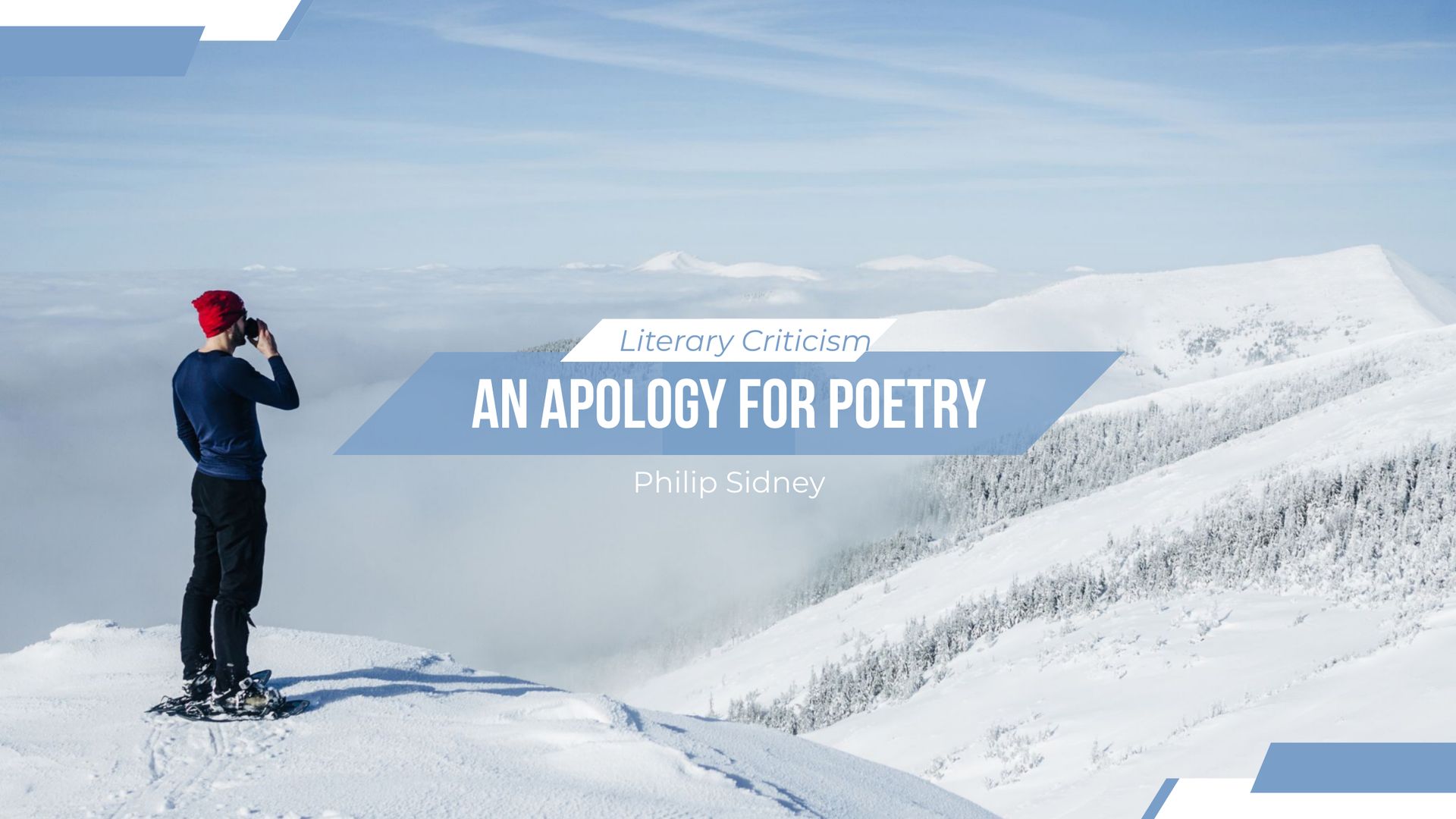AnApology for Poetry

📖 Why You Should Download Our Free eBook?
✅ 100% Free – No hidden costs, just pure value!
✅ Expert Insights – Learn from industry professionals.
✅ Time-Saving Tips – Practical strategies you can apply immediately.
✅ Step-by-Step Guide – Easy-to-follow instructions for beginners and experts alike.
✅ Boost Your Knowledge – Stay ahead with the latest trends and information.
✅ Actionable Strategies – Proven techniques to achieve better results.
✅ Exclusive Content – Get insights not available anywhere else.
✅ Instant Access – Download now and start reading in minutes.
Writer’s Background: Sir Philip Sidney (1554 - 1595) was a courtier, soldier, statesman, scholar, and a distinguished poet of the sixteenth century. First, we will discuss how he praises poetry as the cradle of civilization, a channel of divine power, a medium for both teaching and delighting, and for its unique combination of the virtues of history and philosophy, surpassing them both. He often found himself responding to Plato’s criticism. Recognized as the first English literary critic, true criticism in England began with Sir Philip Sidney.
Deep Background: In 1473, Richard de Bury (1281-1345) published the original Latin version of “Philobiblon”. Sir Thomas Elyot’s (c. 1490-1546) “The Book Named the Governor” (1531) lacks deep critical insight. In “Schoolmaster” (1570), he expresses an affinity with the ‘misomousoi’ or "poet haters" of his time. Plato (428 BCE, Athens,—348 BCE, Athens) ancient Greek philosopher, student of Socrates (c. 470–399 BCE), teacher of Aristotle (384–322 BCE), and founder of the Academy.
As he conceived them, they were accessible not to the senses but to the mind alone, and they were the most important constituents of reality, underlying the existence of the sensible world and giving it what intelligibility it has. Plato’s masterpiece the Republic, and his half brother Antiphon figures in the Parmenides. The life of the Sidney family is a story of high hopes and even greater disappointments. Mary, Sir Philip’s mother, also endured Elizabeth’s lack of gratitude.
When Sidney entered grammar school in 1564, Shrewsbury’s academy provided a solid humanist education, allowing him to learn reading and writing by studying original works in Latin or Greek by authors like Cicero, Virgil, Sallust, Cato, and Xenophon—figures who would later feature in his “Apology”. In the “Apology”, Sidney described the “ultimate purpose of all earthly learning” not as knowledge for its own sake, but as “virtuous action,” which involved serving the commonwealth as a statesman or public servant. With this goal in mind, Sidney entered Oxford University at the age of 13 in 1567-1568, where he stayed for three years without earning a degree.
Introduction: Sidney’s “An Apology for Poetry” is a class of its own, altogether different from these critics. It was first published posthumously in 1595 in two separate yet more or less identical editions by two printers. The one which was brought out by William Ponsonby was called “The Defence of Poesie”. “An Apologie for Poetrie” is the title of the work brought out by Henry Olney. The immediate cause of Sidney’s writing the essay was Stephen Gosson’s “The Schoole of Abuse” (1579), which was unauthorizedly dedicated to Sidney and questioned the morality of poetry and other forms of literature.
Gosson was essentially guided or misguided by the spirit of sour Puritanism. Gosson was baptized at St George's Church, Canterbury, on 17 April 1554. He entered Corpus Christi College, Oxford, in 1572, and on leaving the university in 1576 he went to London. After the publication of “The Schoole of Abuse”, Gosson retired to the country, where he acted as tutor to the sons of a gentleman (“Plays Confuted.” “To the Reader,” 1582). Because of their moral standpoint, he excludes such plays as these from the general condemnation of stage plays in his “Schoole of Abuse”, containing a pleasant invective against Poets, Pipers, Plaiers, Jesters, and such like Caterpillars of the Commonwealth (1579). Edmund Spenser, in his “Teares of the Muses” (1591), laments the same evils, if only in general terms. The tract was dedicated to Sir Philip Sidney, who seems to have resented being connected with it.
Start writing here...